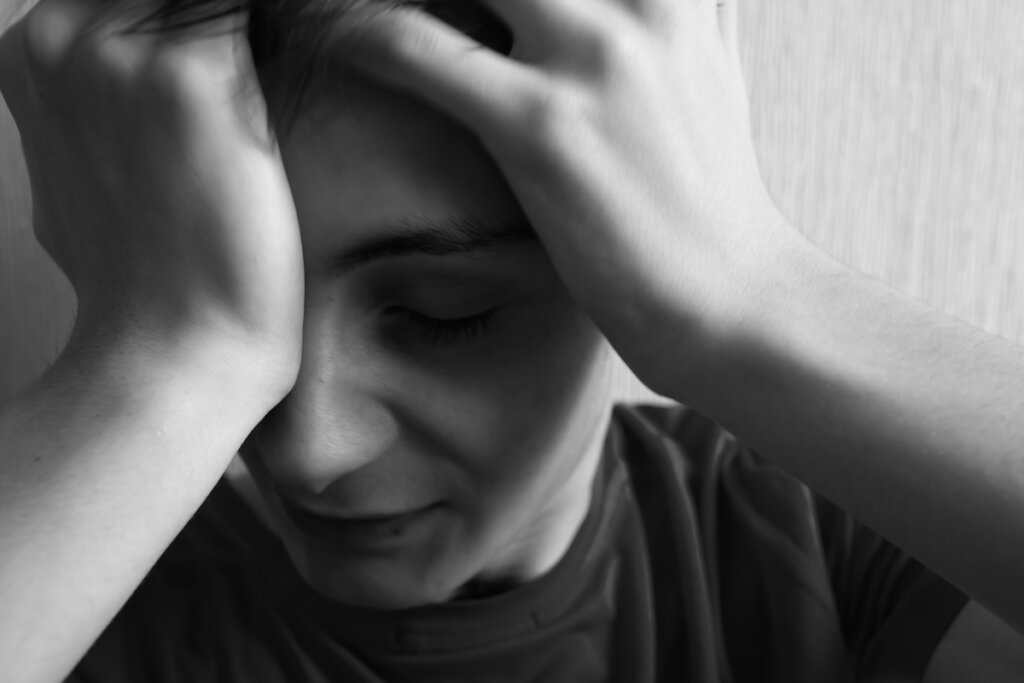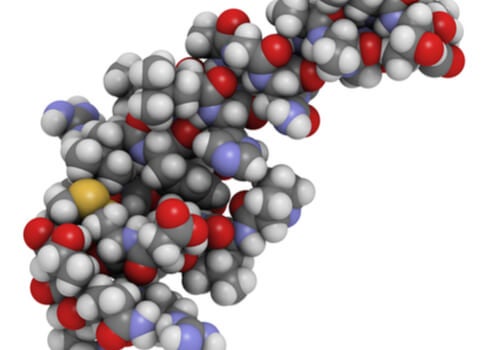We all know how important it is to sleep well. Indeed, enjoying a deep, sustained and refreshing night’s rest allows us to get through the day at 100 percent with our faculties in top form. On the other hand, insomnia not only shuts down all traces of energy, but it also causes us to eat impulsively and unhealthily.
No doubt it’s happened to you. On those nights when you’re unable to sleep, you probably have a tendency to lie awake feeling ravenously hungry. However, you’re not really. You simply crave those processed snacks and anything sweet you can find in the kitchen. In fact, the more sugar, the better.
The fact that your dietary choices when you’re suffering from insomnia aren’t the healthiest isn’t by chance. Actually, it’s your brain that incites you and awakens this desire and the need to consume foods with a higher glucose content. Furthermore, it does it for a specific reason. Let’s find out more.
If you sleep poorly, your diet changes
Data suggests that people with chronic problems getting a good night’s sleep are at higher risk of being overweight. That’s because, if you sleep poorly, your diet varies to the point of altering the regulation of your hormones. Moreover, scientists have discovered that even changes in brain function appear.
The truth is that the link between food and sleep is clearly bidirectional. What you eat can affect your sleep quality, as does, for example, copious extremely spicy dinners and stimulating drinks. On the other hand, for a few years, science has warned us about how little sleep can worsen our diet.
Lack of sleep and decreased leptin
Leptin is a hormone responsible for regulating food intake. It does this by sending a signal to the brain informing it that you’ve already obtained enough energy. It’s thanks to this element that you manage to feel satiated and stop eating. However, what would happen if this hormone wasn’t present at adequate levels in your body?
As a matter of fact, this is precisely what happens if you sleep poorly. A study conducted by the University of Kumamoto Prefecture (Japan) found that lack of sleep lowers leptin levels and raises ghrelin levels. This last hormone, ghrelin stimulates feelings of hunger.
Therefore, if you go for weeks not sleeping properly, you feel more hungry. Furthermore, it takes longer for you to feel full. This happens because your brain needs you to achieve deep sleep to carry out its cleansing and hormonal regulation tasks. If you only sleep for three to five hours, it won’t be able to complete its work.
Research claims that when adolescents sleep six-and-a-half hours per night (instead of nine-and-a-half), they opt for a higher consumption of added sugars and carbohydrates.

Carbs and sugar
If you sleep poorly, it not only takes longer for you to feel full. In fact, as if suffering the effects of insomnia wasn’t enough, your dietary preferences also change. This may seem strange to you. After all, why should reduced sleep cause you to experience a greater need to consume sugary products?
In a study published in the journal, Sleep, led by Dr. Kara McRae Duraccio, it was claimed that staying up late causes teens to develop unhealthy eating habits. They feel a more intense need to consume foods with a higher glycemic load.
The study claims that sleeping little causes the brain to experience a glucose deficit and urges us to obtain it. They state that sleeping less than seven hours is enough for us to forgo foods like fruit and vegetables, and go toward carbohydrates, pastries, sweets, etc instead.
Make sure you sleep well to take care of your brain and eating habits
Sleep deprivation or the simple fact of sleeping less than eight hours a night has consequences for the brain. However, we don’t always give importance to this reality. For example, new technologies make young people sleep badly and for less time. Research even ex plaint how poor sleep alters brain activity in the prefrontal cortex.
All of this translates into making worse decisions, losing our capacities for reflection, and gaining in impulsiveness. This also sheds light on why we allow ourselves to be carried away by the desire to eat foods that aren’t exactly good for our health. Craving, gluttony, and impulsivity affect our self-control, ability to reason, and desire to eat healthily.
If you sleep badly, everything in your daily routine will tend to go wrong. Therefore, make sure you treat your sleep with the respect and importance it deserves. Improve your habits and ensure that your nightly rest is sacred. Only in this way, will you allow your brain to carry out its tasks.
After all, sleep, as Sophocles said, is the only effective medicine for everything.
The post If You Sleep Badly, You Probably Eat Badly, Research Claims appeared first on Exploring your mind.



















Comments